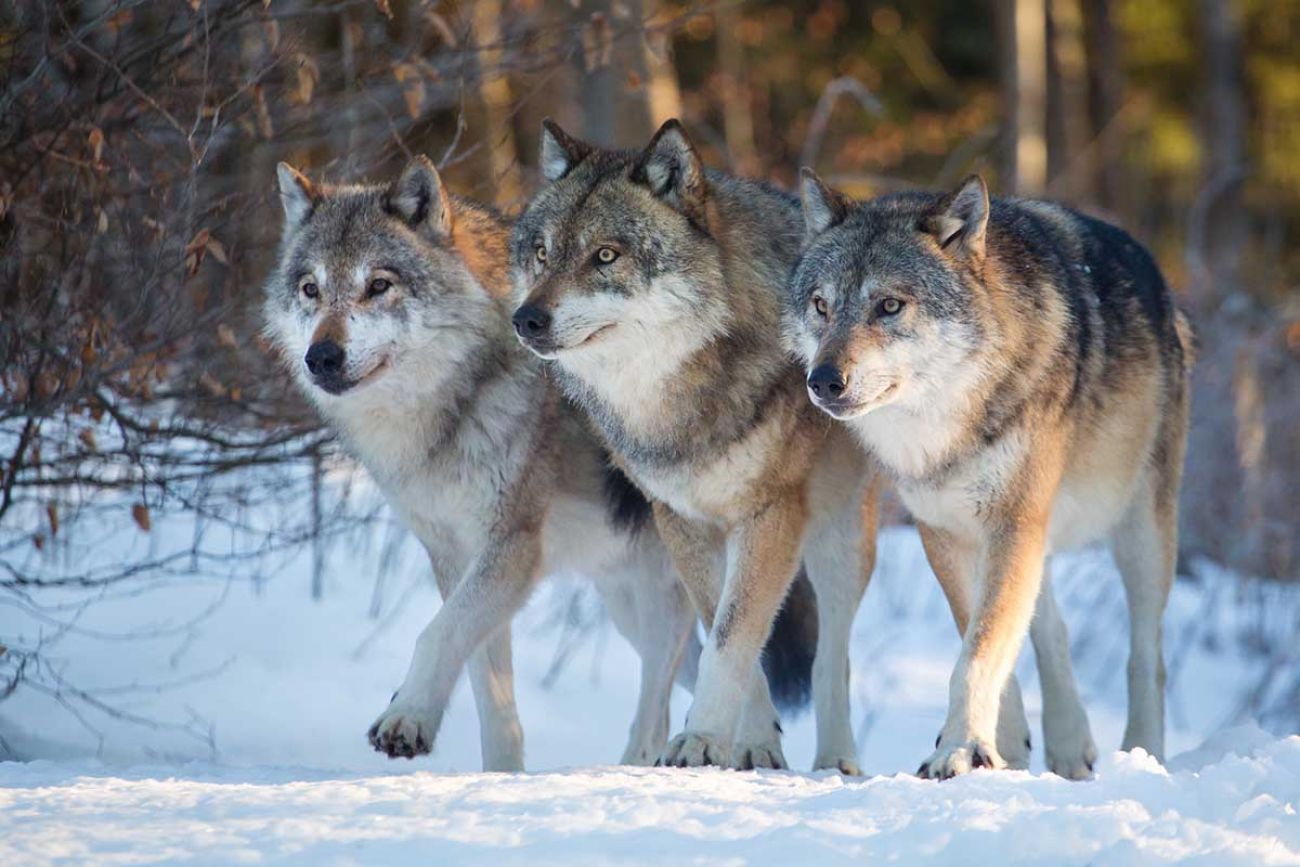Michigan lawmakers to DNR: Set a wolf hunt now. State wants to wait.

LANSING — Michigan Republican lawmakers doubled down Tuesday on their calls for a wolf hunt, adopting a resolution asking the Department of Natural Resources to host a season next year.
“The DNR has a responsibility to set a hunting and trapping season across the (Upper Peninsula),” said state Rep. Greg Markkanen, R-Hancock, who sponsored the resolution. “The sportsmen and trappers have waited patiently long enough.
House lawmakers passed Markkanen’s resolution, along with an amended but nearly identical Senate version first introduced by Sen. Ed McBroom, R-Vulcan, in a voice vote Tuesday. The Senate will review the amendments and vote on the resolution again.
The resolution is purely symbolic: The state Natural Resource Commission is in charge of setting hunting seasons in Michigan, and commissioners, so far, have decided to hold off.
Related:
- Should Michigan hunt wolves, cranes, moose? Republican lawmakers think so.
- Gray wolves, now off endangered list, may be targeted by Michigan farmers
Commissioners are set to discuss a new survey on residents’ attitudes about the apex predator at their Thursday meeting. But the DNR, which makes recommendations to the Natural Resources Commission, is recommending a delay on any future vote, said Ed Golder, a DNR spokesperson.
Once present throughout Michigan, gray wolves were virtually eliminated in the 20th century due to hunting and state bounty programs. The animal returned to the state in 1988 and at least 695 wolves were known to be in the Upper Peninsula as of winter 2020.
Wolf opponents and advocates have sparred for years over hunting proposals, battles that have intensified since the U.S. Fish and Wildlife Service last year removed wolves from the Endangered Species list. That left Michigan regulators in charge of population management.
Golder, the DNR spokesperson, said several things would have to take place before the agency considers a wolf hunt: The Michigan Wolf Management Plan, which outlines population goals and guidance ,for needs updating.
Golder also said the DNR would have to consult the state’s tribal governments, which have federally protected rights over natural resources, including wolves. Six Native American tribes sued Wisconsin when it legalized a wolf hunt last year.
“The legal status of wolves should be more permanently settled,” Golder said, “especially given the long history of legal challenges to delisting decisions and the resulting shifting status of wolves.
Natural Resources Commission Chair Carol Rose said there is an “intense sense of urgency” among hunters to kill wolves in Michigan, but the commission is waiting on an updated wolf management plan from the DNR before deciding.
“Other states have stepped up and jumped on the opportunity to have a wolf hunt,” Rose said. “But this is Michigan, we follow certain protocols, and we care very much about the management of all our natural resources and wolves are among them.”
Several states held wolf hunts after the animal was stripped of federal protections in 2021. In Wisconsin, hunters in February last year exceeded a 119-kill quota recommended by biologist when they killed 218 wolves in just four days. Wisconsin’s wolf population was estimated to be around 1,030 in 2019.
Conservationists sued Wisconsin, saying hunters killed too many wolves during a rushed spring hunt. A judge blocked the state’s most recent wolf hunt, and said the order would stay in place until the Wisconsin DNR updates its wolf management plan.
State Rep. William Sowerby, D-Clinton Township, said the wolf resolution asks the NRC to ignore current efforts to update Michigan’s wolf management plan.
“(Hunting wolves) could be counterintuitive by leading to a decrease of wild prey populations, like deer,” Sowerby said. “Wolf populations in Michigan have not had any significant impact on us. The wolf population just started to stabilize.
Michigan Environment Watch
Michigan Environment Watch examines how public policy, industry, and other factors interact with the state’s trove of natural resources.
- See full coverage
- Subscribe
- Share tips and questions with Bridge environment reporter Kelly House
Michigan Environment Watch is made possible by generous financial support from:
Our generous Environment Watch underwriters encourage Bridge Michigan readers to also support civic journalism by becoming Bridge members. Please consider joining today.
See what new members are saying about why they donated to Bridge Michigan:
- “In order for this information to be accurate and unbiased it must be underwritten by its readers, not by special interests.” - Larry S.
- “Not many other media sources report on the topics Bridge does.” - Susan B.
- “Your journalism is outstanding and rare these days.” - Mark S.
If you want to ensure the future of nonpartisan, nonprofit Michigan journalism, please become a member today. You, too, will be asked why you donated and maybe we'll feature your quote next time!






